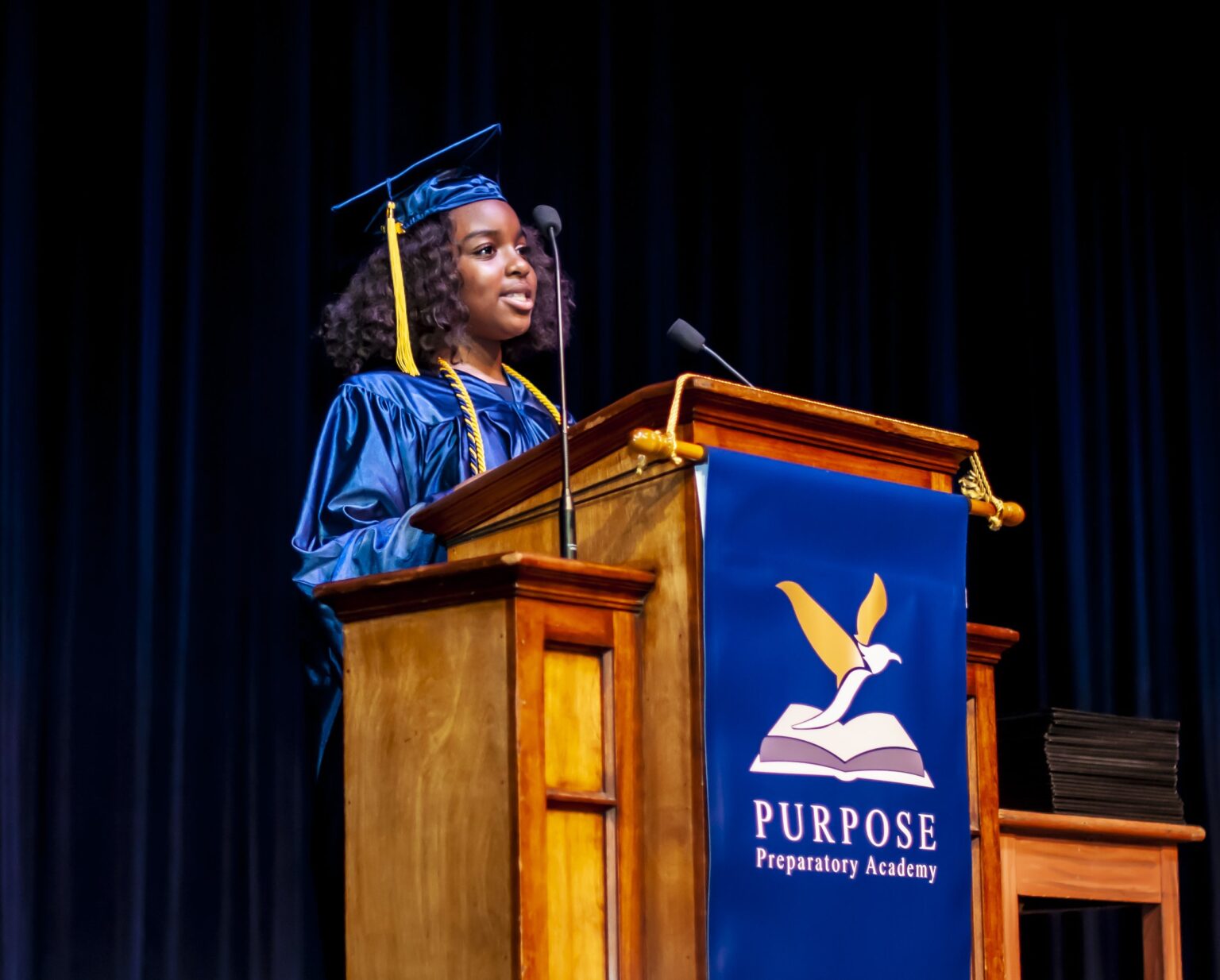NASHVILLE, Tenn. (Sept. 7, 2022) — Every historically disadvantaged student group enrolled in Nashville’s public charter schools — students of color, economically disadvantaged students, English Learners and students with disabilities — has made progress since 2021 in both math and reading, according to an analysis of TNReady data presented today by the Nashville Charter Collaborative.
Within the growth in student achievement across Metro Nashville Public Schools, charter schools had double-digit one-year gains in proficiency: 11 percentage points in both math and English-Language Arts.The Collaborative, which represents Nashville’s public charter schools, gathered at Purpose Preparatory Academy, a North Nashville elementary school that serves a majority of students of color and those from low-income families. Purpose Prep is the top performing Nashville charter school for students of color and those who are economically disadvantaged, growing their math scores by 37.5 percentage points and reading by 26.5 percentage points since 2021.“Improving education in Nashville is a matter of social justice, and it would be hard to find a school that is doing a better job of improving the potential life trajectory of its students than Purpose Prep,” said Laurie Brown, senior vice president of advocacy for the Nashville Charter Collaborative. “Historically, our country has done a disservice to our students of color and those who are economically disadvantaged. As a result, our most critical priority as a city must be to improve the quality of public education for those who need it most. Today, we celebrate our city’s charter schools, which are doing just that.”
Public charter schools are free, public schools, which in Tennessee, are run by nonprofit partners. Compared to the state and the district as a whole, local charter schools serve a higher proportion of students from historically disadvantaged subgroups.
In Nashville, these students typically perform lower than their similar peers statewide. But in the district’s public charter schools, the opposite is true. These subgroups of students are performing higher than the state average in English language arts and math.
Lagra Newman, founder and head of school at Purpose Prep, said that success at her school relied on showing up every day and being steadfast in their commitment to both the discipline and the joy of learning.
“Our scholars are Black and brown, from North Nashville, and many of their families lack significant economic means, and they are excelling,” Newman said. “There is no magic recipe or even rocket science behind the results we are producing at Purpose Prep. Everything we do can be replicated in any school, and our best practices are grounded in research based best practices. Mainly, our school was created and centered specifically around the children in our community – Black and brown children from North Nashville. Our model is a testament to how successful students can be when they are empowered through their curriculum, educated by teachers who believe in their potential, and encouraged. Never underestimate the power of a community-focused school.” Additional highlights from the analysis of school-level TNReady data.
Academic Proficiency
- More Nashville charter school students are reading on grade level today than before the pandemic.
- While only 21% of high school students of color are considered “Ready Graduates” across the state, every single charter high school in Nashville exceeds that average, and most far exceed it.
- STEM Prep and LEAD Academy have double the state average
- KIPP Nashville Collegiate High School eliminated the achievement gap and their students of color are now scoring higher than their white peers across the state
Academic Growth
- More than three quarters of charter schools posted the highest level of student test score growth on TVAAS.
- Of schools that enroll a majority of students of color, the top 10 schools for ELA growth are all charter schools, and nine of the top 10 schools for math growth are charter schools.
“We are proud that charter schools are a bright spot within MNPS, which itself outperformed the state’s rate of improvement. Now, it is incumbent on all of us serving Nashville public school students to get to a point of true collaboration with each other, where we’re sharing what is working, and being honest about what is not. Part of that approach requires that we embrace the fact that a diversity of school types, from magnets to charters to traditional district schools are all critical to a healthy public school ecosystem. We all have something to learn from each other,” Brown said. “Our collective goal should be to have a great school in every neighborhood. All families — not just those in wealthy neighborhoods or with the means to relocate — deserve the chance to choose where their child goes to school.”





